Create an automation that starts when a variable value changes
You can set an automation to start when a variable in your mailing list changes its value. For example, you can launch the automation if a user’s location, order details, appointment date, or other data points have changed.
In this article, we will talk about how to set up the trigger and create and launch an automation flow.
How to launch an automation when a variable value changes
To run a flow after a variable value has changed, you can edit the variable as follows:
- type in the new value manually in your mailing list;
- update the value using API methods and integrations that support these methods (Change a Variable for an Email Contact, Change a Variable for a Phone Contact, and Update a List of Variables for a Phone Number);
- update or add a variable in the CRM contact card;
- import contacts with variables into the CRM system;
- use the Action element in Automation 360 when creating a deal with variables;
- add a space to an existing variable value in the CRM contact card and save the changes;
- update variable values using CRM API methods if the contact’s assigned value is passed;
- modify a number variable by adding a character or repeating the same number (for example, changing
101to101.0or0to00); - adjust the time in a date variable, even if the date has not changed.
Please note that you will not be able to launch an automation flow in the following cases:
- if you update your variables by uploading contacts to your mailing list via a file;
- if you add your variables using the following API methods: Add Emails to a Mailing List (single-opt-in), Add a Phone Number to a Mailing List (without variables), and Add a Phone Number to a Mailing List (with variables);
- when you create a contact manually and add a variable to it;
- if the contact’s assigned value is passed from Automation 360;
- if your list is specified as an array
"Multiple_List": "[\"option 1\",\"option 2\",\"option 3\",\"option4\"]", then individual variables will not be passed.
How to create an automation
Go to Automation360, and click Create automation.
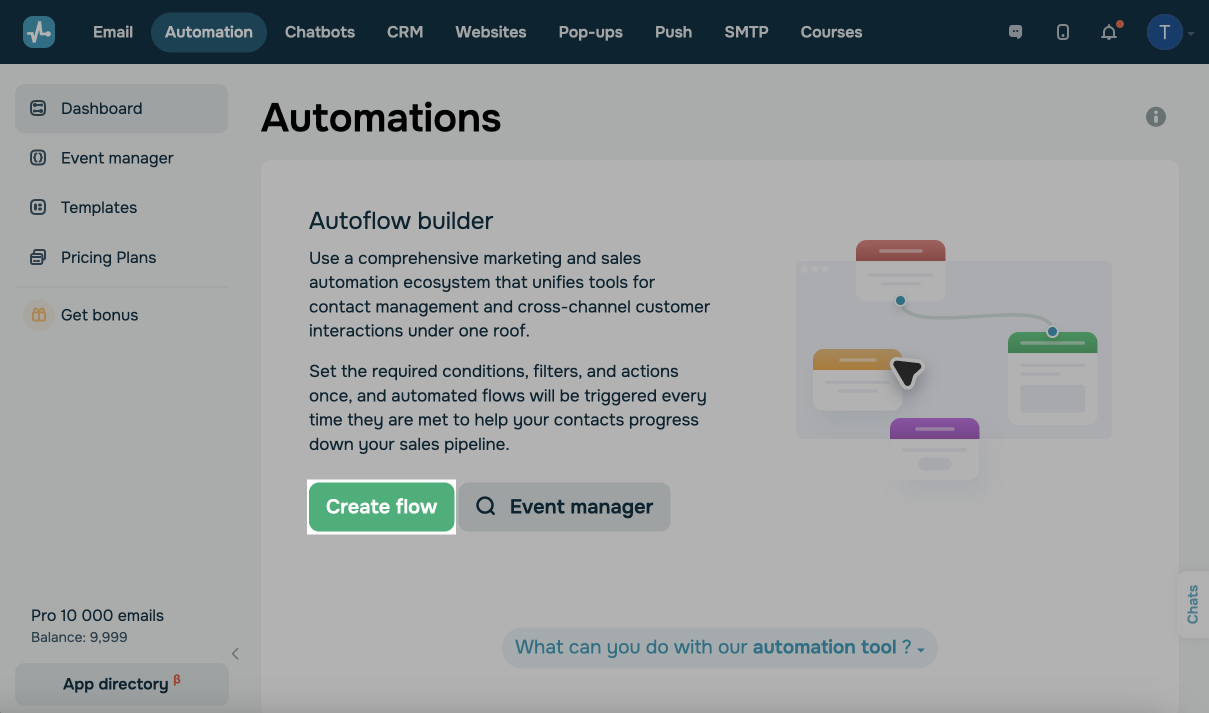
Set up automation options
In the flow builder, type in your automated flow’s name and sender email address and name, and select your unsubscribe page from the drop-down list and the unsubscribe form’s language.
You can also select an unsubscription category for contacts and add UTM tags.
In the Advanced options subsection, you can add your preferred sending days and time. The system will wait for the specified amount of time and send your flow on the closest day that matches the conditions set in the automation options for each element individually.
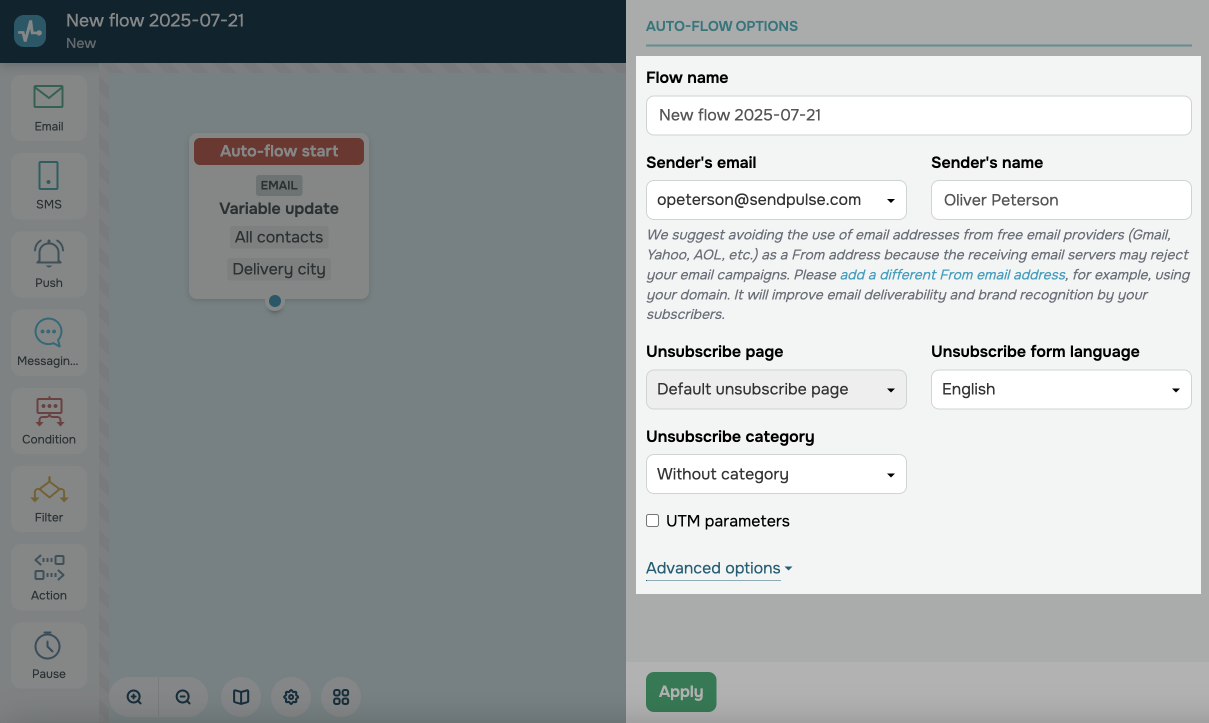
Set up the trigger
Set the start event to track
Select Change variable as your flow start event.
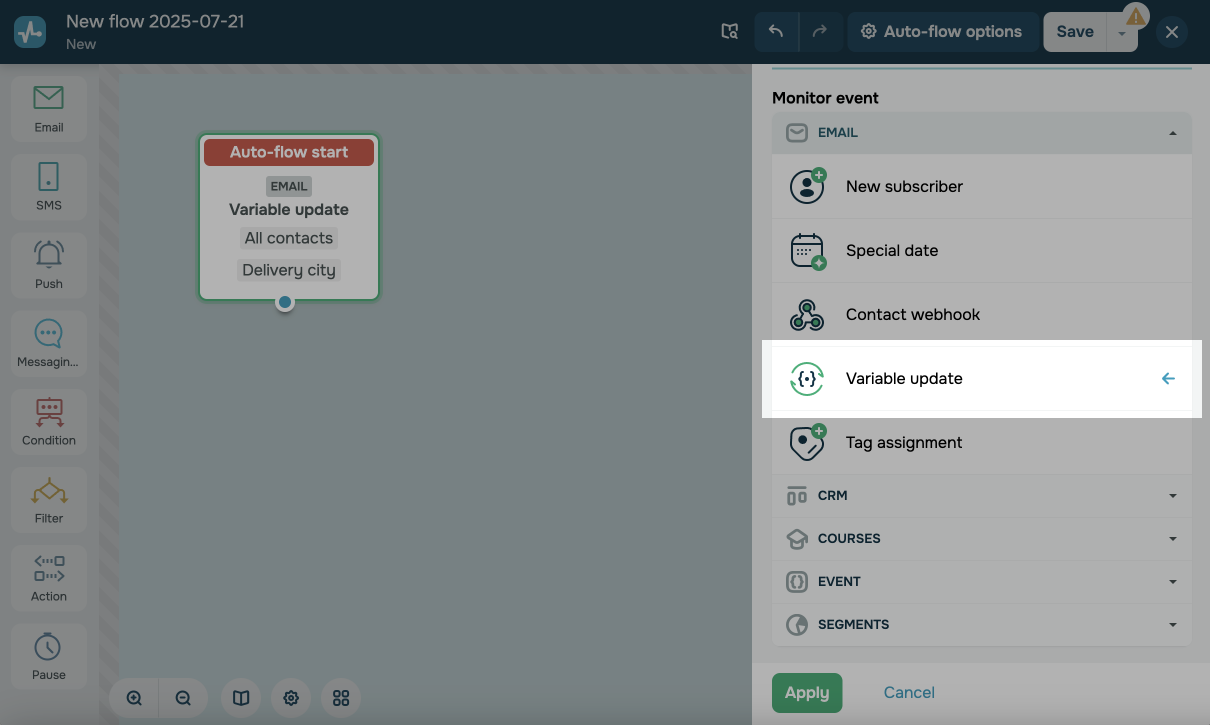
Select a mailing list
Select or create a mailing list where you want to track variable value changes.
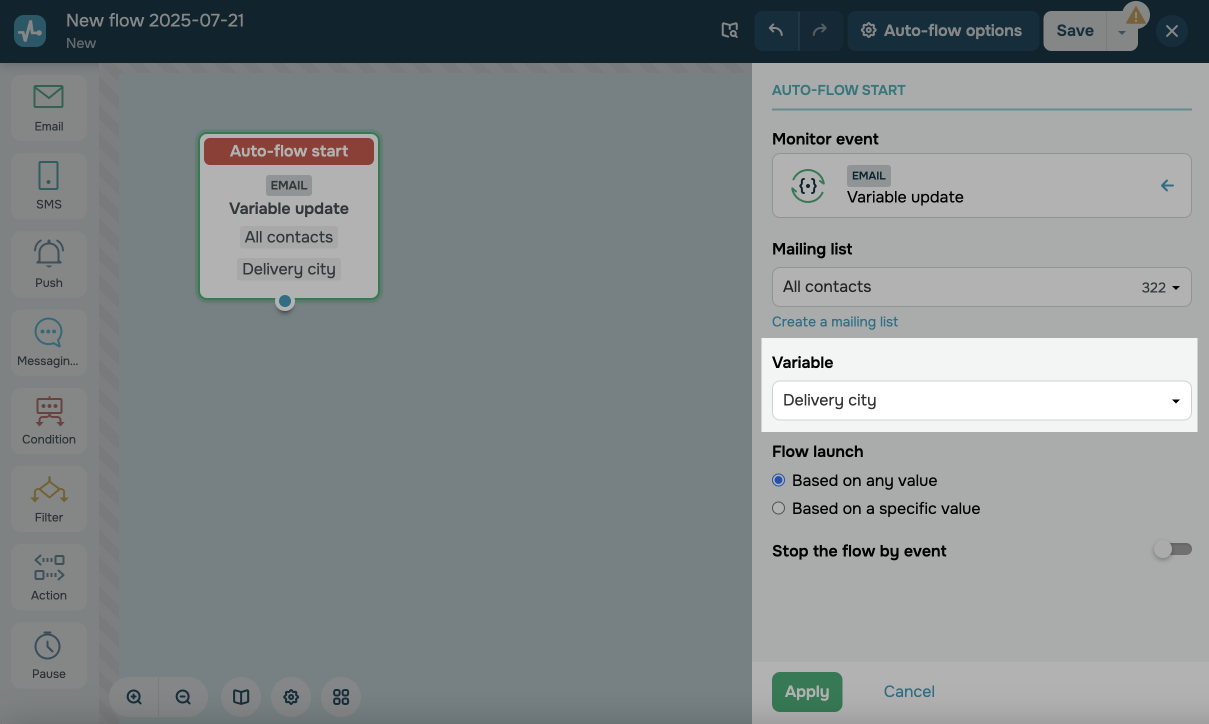
Add a variable
Select a variable whose value changes you want to track.
For variables of the String type, you can track changes in your text value. For example, you can monitor if a customer’s delivery address, order details, or other personal data points have changed.
For variables of the Number type, you can track changes in your numeric value. For example, you can monitor changes in the number of products ordered by a customer or their purchase price.
For variables of the Date type, you can track date changes in the MM/DD/YYYY format. For example, you can monitor if an event date or delivery date has changed.
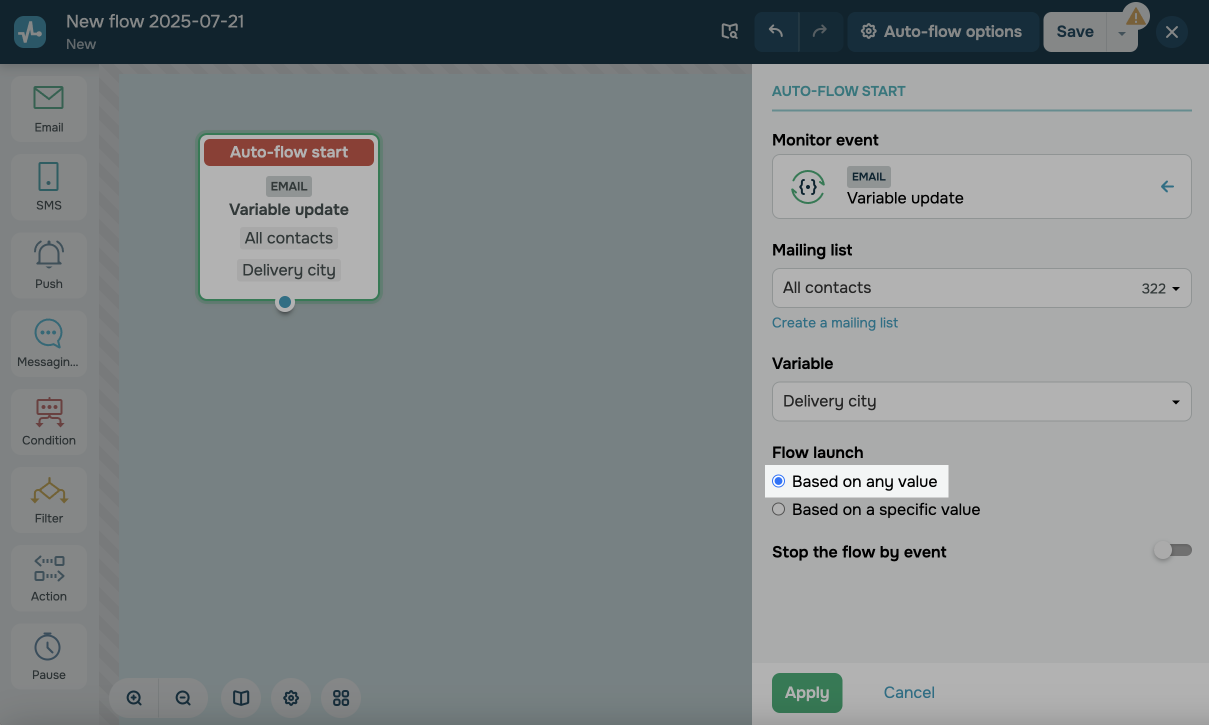
Choose a condition
Select a variable tracking condition.
Any value
The system tracks changes in any variable value.
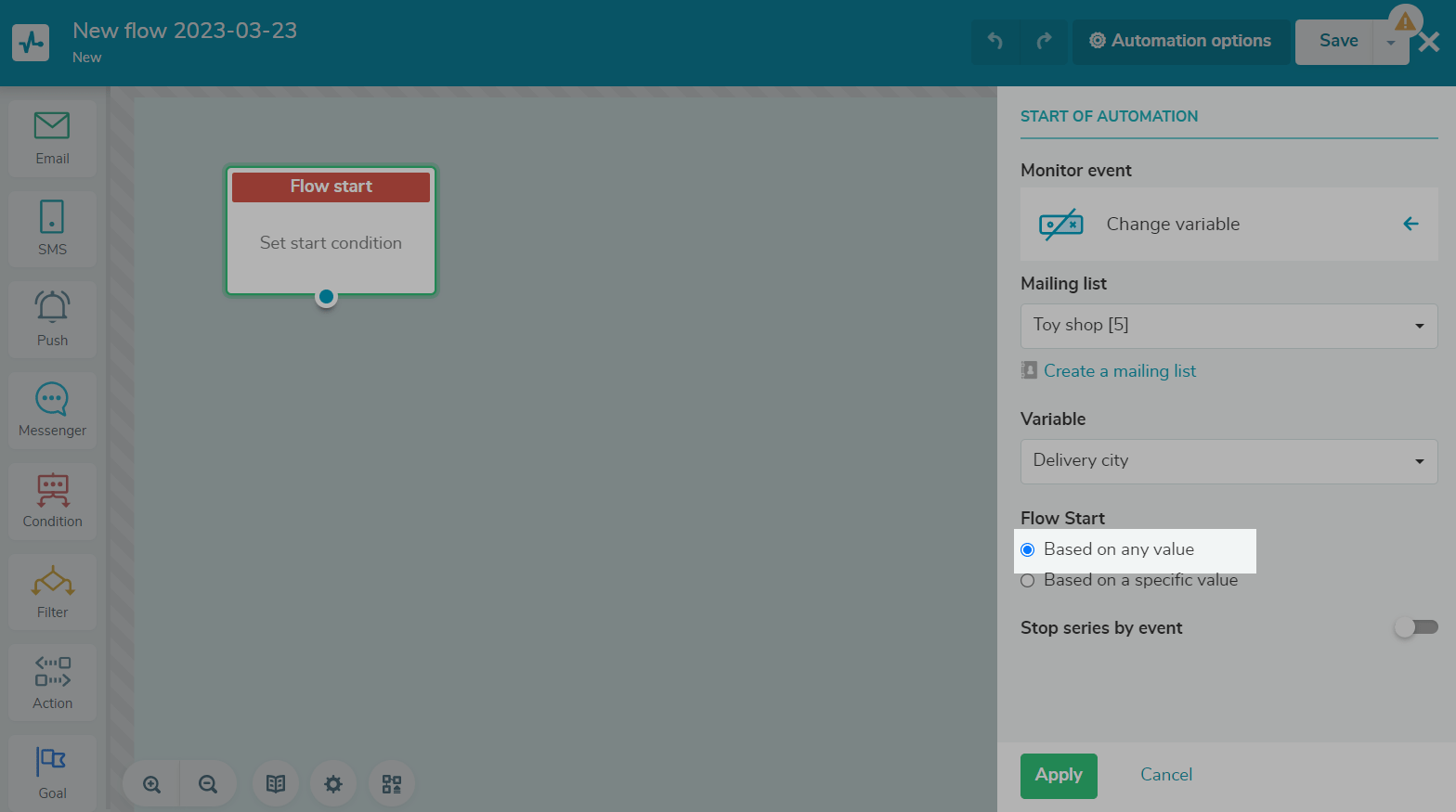
Specific value
The system tracks changes in a specific variable value. If you select this option, add the value you want to track.
Variables are case-sensitive. Insert the exact value that should launch the automation.
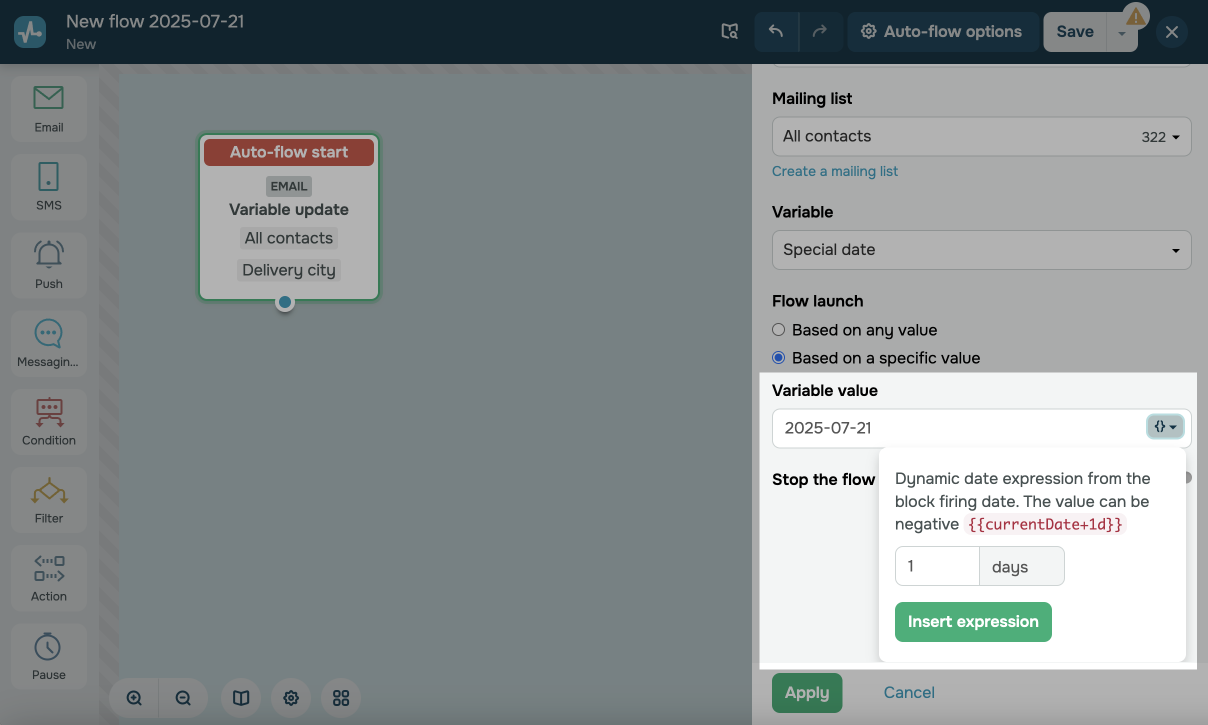
You can also set a dynamic date for a variable of the Date type. Click {}, select a variable, and specify the number of days. You can use + to add values and - to subtract them. The system will monitor changes in the tracked variable based on the specified value.
Choose if you want to stop the flow by event, and select an event if so.
Your automation flow stops for a contact when the system receives an event with their email address to the specified link.
You can also count the automated flow stop as a conversion.
Add flow elements
Continue customizing the flow scenario. With Automation360, you can send an email, SMS, Viber, web push, or chatbot campaign to users. Drag and drop the necessary elements to your workspace, and build your flow scenario.
Optionally, you can add other elements to diversify your automation flow functionality. For example, you can add the Condition element to track email opens and delivery, include the Filter element to branch your flow based on variable values, and use the Action element to create a new deal in your CRM system, move a user to another mailing list, or send notifications about events in your system.
Read more: Automation 360 elements.
Run your automation flow
Once you've finished setting up the flow, save and launch it.
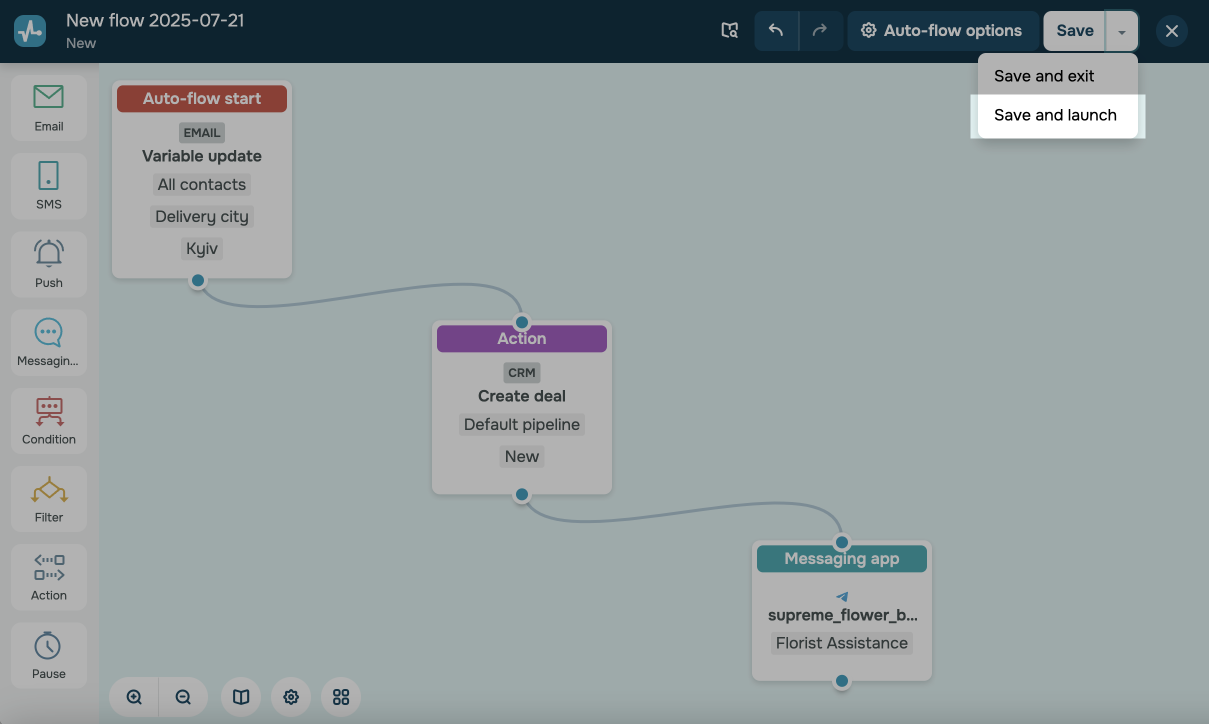
Last Updated: 13.08.2024
or